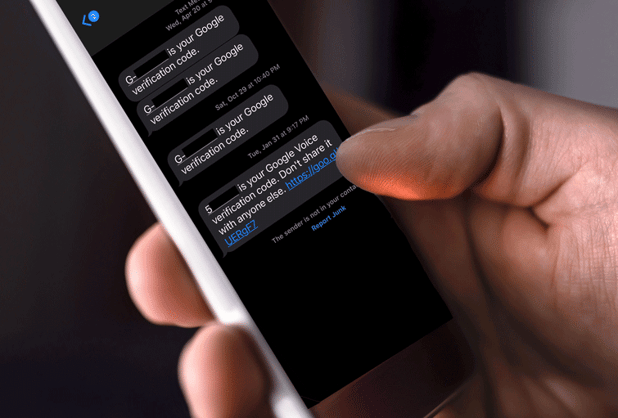- Home
- It's All About Community
- Chesapeake Bank Blog
- A Fraud Scenario on How Scammers Might Represent Your Bank
Fraudsters are always looking for opportunities to take advantage of others. Imposters may contact you on our behalf requesting your login credentials or to “verify” personal information.
HOW THEY WORK: An imposter could spoof our number. Then contact you (pretending to be on our behalf) to say that they need your credentials to make sure you’re converted properly to our new online banking system, or sign you up for a new product, or correct a transaction hitting your account.
THEY LOVE EMOTIONS: They may tell you that there has been an error or that you could experience an interruption in your account access if you don’t provide information right away. If you panic, you may react quickly and provide sensitive information. That’s what they want.
WHY YOU’RE VULNERABLE: It may seem legit since you know we’re in transition, plus it came from our number. So, even if you have fantastic judgment, you may second guess yourself and be tempted to provide this info. After all, you can’t go without your money, right?
HOW THEY USE IT: Once the imposter has your credentials, they could initiate wires or other transactions out of your account.
ALTERNATIVE SCENARIOS: Imposters may also send emails from addresses similar to ours. Their messages could also include links that look like our web address. If you clicked on the link, malicious software could be installed on your pc that captures personal information.
WHAT YOU NEED TO KNOW:
- Chesapeake Bank will never reach out to you directly to collect personal information.
- Additionally, to reduce fraud, there are parameters that we have in place, like calling to verify wires that meet certain criteria. In situations where there may be a heightened risk, we modify our process and controls to mitigate it. With this example, additional verifications and metrics are in place for wires initiated through online banking.
- If you are ever suspicious about the communication you receive, do not provide information, please contact your branch immediately to inquire and report it. You may also contact our solution center at 877-436-9032.
IT'S NOT JUST FOR BANKS
Scammers and fraudsters aren't just impersonating banks. They will represent any company, individual, or entity if they believe they can acquire personal information or money from you. Consider it your first red flag if you have a connection with the subject that is brought up.
Visit our Fraud & Security Resources Page or Banks Never Ask That by the American Bankers Association, to learn more.
-
Categories
Posts by Topic
- Business (98)
- It's All About Community (73)
- Personal Finance (70)
- CFS News (49)
- Employees (46)
- Northern Neck (37)
- Middle Peninsula (34)
- Chesapeake Payment Systems (27)
- Richmond (26)
- Williamsburg (20)
- Fraud & Security (17)
- Home Buying (12)
- Chesapeake Wealth Management (11)
- Flexent (11)
- Customer Testimonials (7)
- COVID-19 (6)
- Chesterfield (5)



